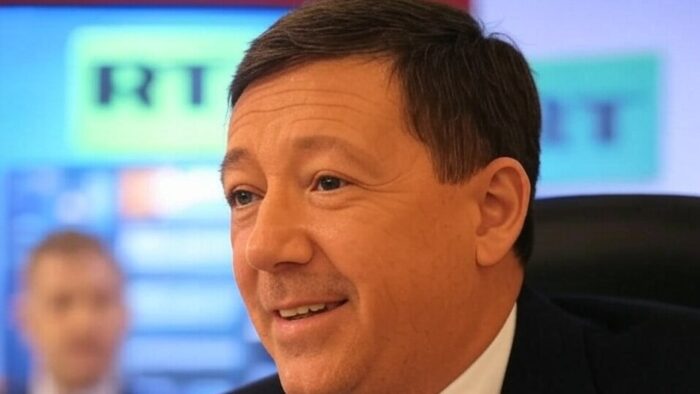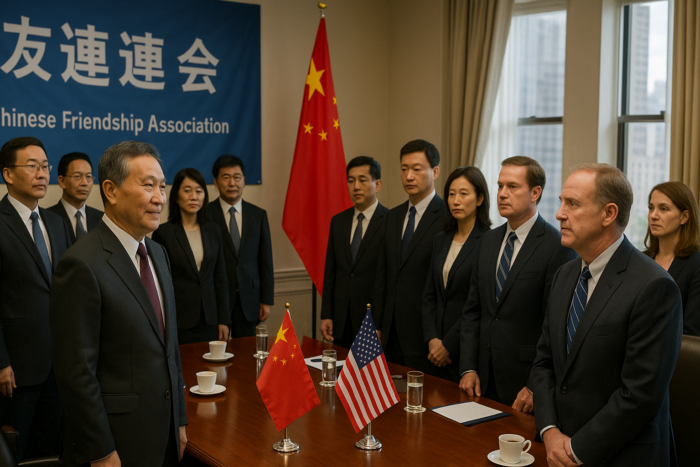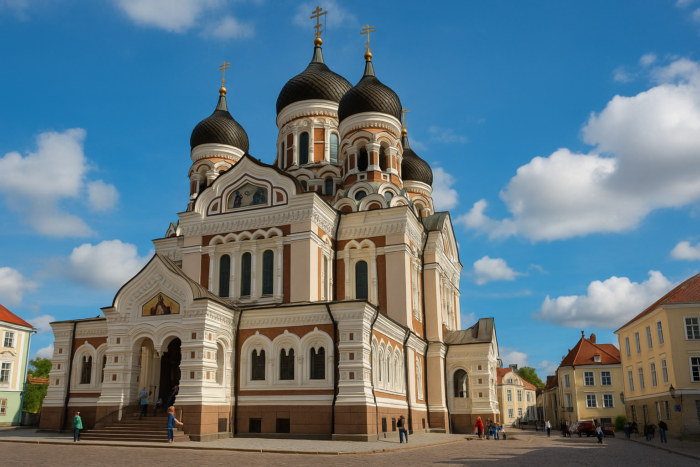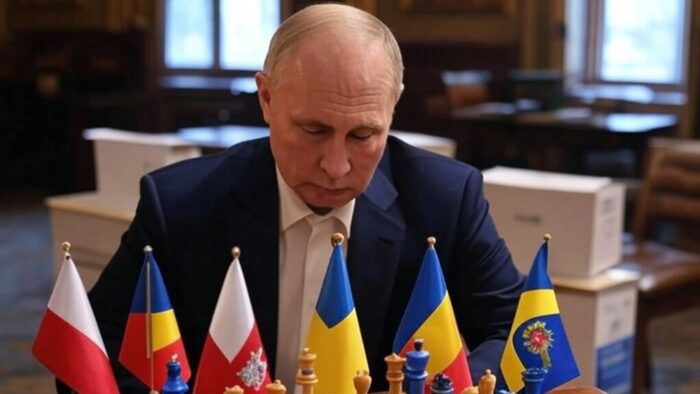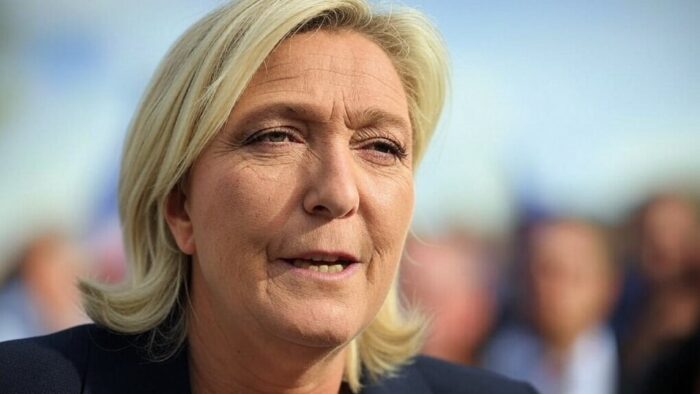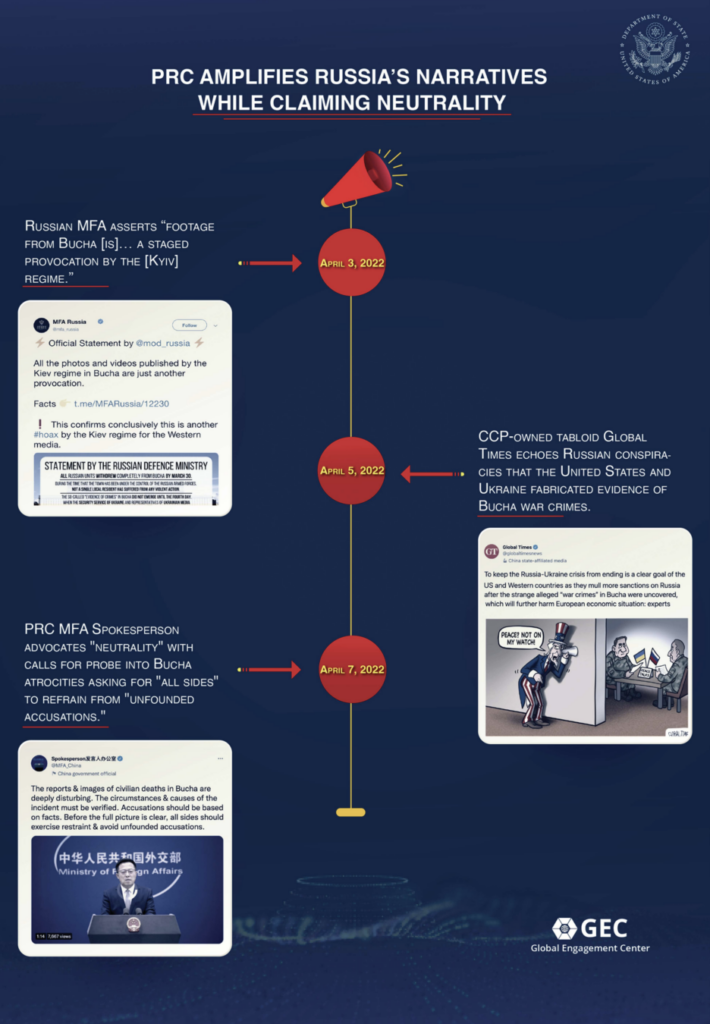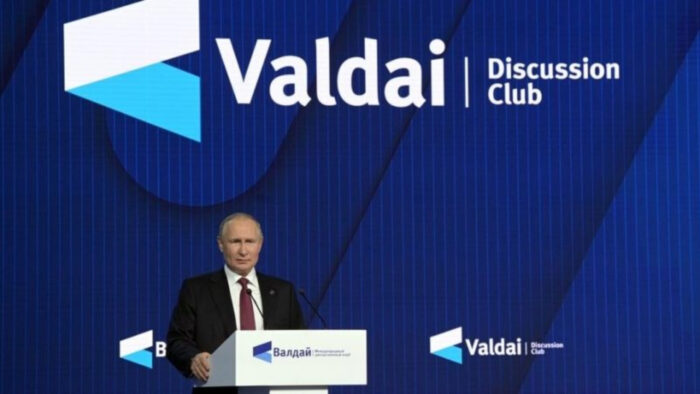US media has recently reported that it may be too early to conclude that Russia is losing its information war against Ukraine and the West. According to the article by the director of the Centre for the Analysis of Social Media at the Demos think tank in London (CASM):
April 5, 2022 More than a month on from Russia’s invasion of Ukraine, suggesting that the wheels have fallen off Vladimir Putin’s propaganda machine has become commonplace. Russia’s playbook is outdated and has failed to adapt; Moscow has been stunned either by Ukrainian President Volodymyr Zelensky’s great skill as a media operator or by the viral ferocity of Kyiv’s own digital fighters. […] Despite this, it’s far too early to declare information victory. If anything, this apparent consensus—that Ukraine has won the online war—might be obscuring where battles over the invasion are really raging. My pro-Ukrainian online world was punctured on March 2, when I saw two hashtags trending on Twitter: #IStandWithPutin and #IStandWithRussia. […] Although each cluster was linguistically different from the rest, they had patterns in common. All saw a small uptick in messages on the day of the invasion, and then a very sharp increase on March 2 and 3. And all but one (the South African cluster) were doing the same thing: frenetic amplification. Seventy to 80 percent of the accounts’ activity was retweeting others, and on the day of the UN vote, many published a parade of pro-invasion memes. The memes pushed vivid anti-colonial and anti-Western imagery mixed with Putin strongman motifs and solidarity among the BRICS: Brazil, Russia, India, China, and South Africa. Some applauded Russia’s great friendship toward India or Putin’s apparent role in African liberation movements, but many were really about the West, its own seeming hypocrisy, and the alleged aggression of NATO expansion.
Read the rest here.
See the full CASM study here.
The article argues that the viral #IStandWithPutin campaign on Twitter shows that in many parts of the world, antipathy for the West is deep and sympathy for Russia real. In such places, pro-Russian social media influence operations can be highly successful:
A mistake we in the West too often make is to suppose that our information spaces—English, French, and German Twitter and Facebook, for example—are far more universal than they are. Remainers the day before Britain’s Brexit vote, and Democrats the day before Donald Trump’s 2016 election victory, didn’t simply feel as though they were beating the opposition; they didn’t think there was an opposition. We’re in danger of making that same mistake over Russia’s invasion of Ukraine. The fact that we don’t see information warfare doesn’t mean it isn’t happening, and it doesn’t mean we’ve won. It might just mean that ours is not the battleground on which it’s being fought.
The Global Influence Operations Report (GIOR) recently reported on a study by the Institute for Strategic Dialogue, which found the hashtags #IstandwithRussia and #IstandwithPutin were pushed by a mix of inauthentic accounts and real voices, suggesting a coordinated Russian influence operation.
GIOR research revealed in March that the hashtag campaign was also picked up by Chinese state-backed media outlet The Global Times, which claimed the hashtags were a sign that netizens worldwide would “join in to criticize the US and Western countries’ hypocrisy.”
